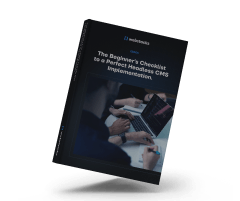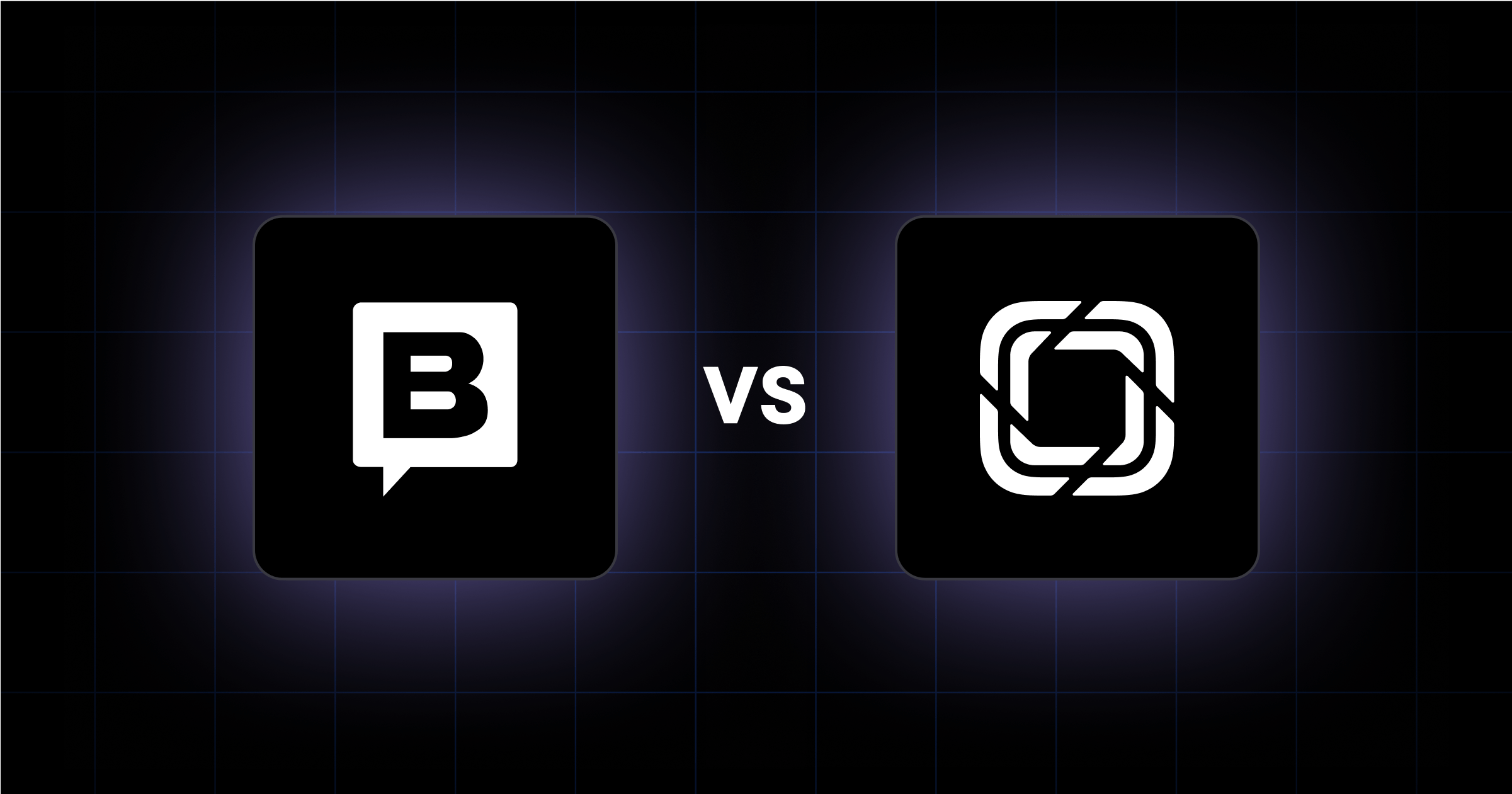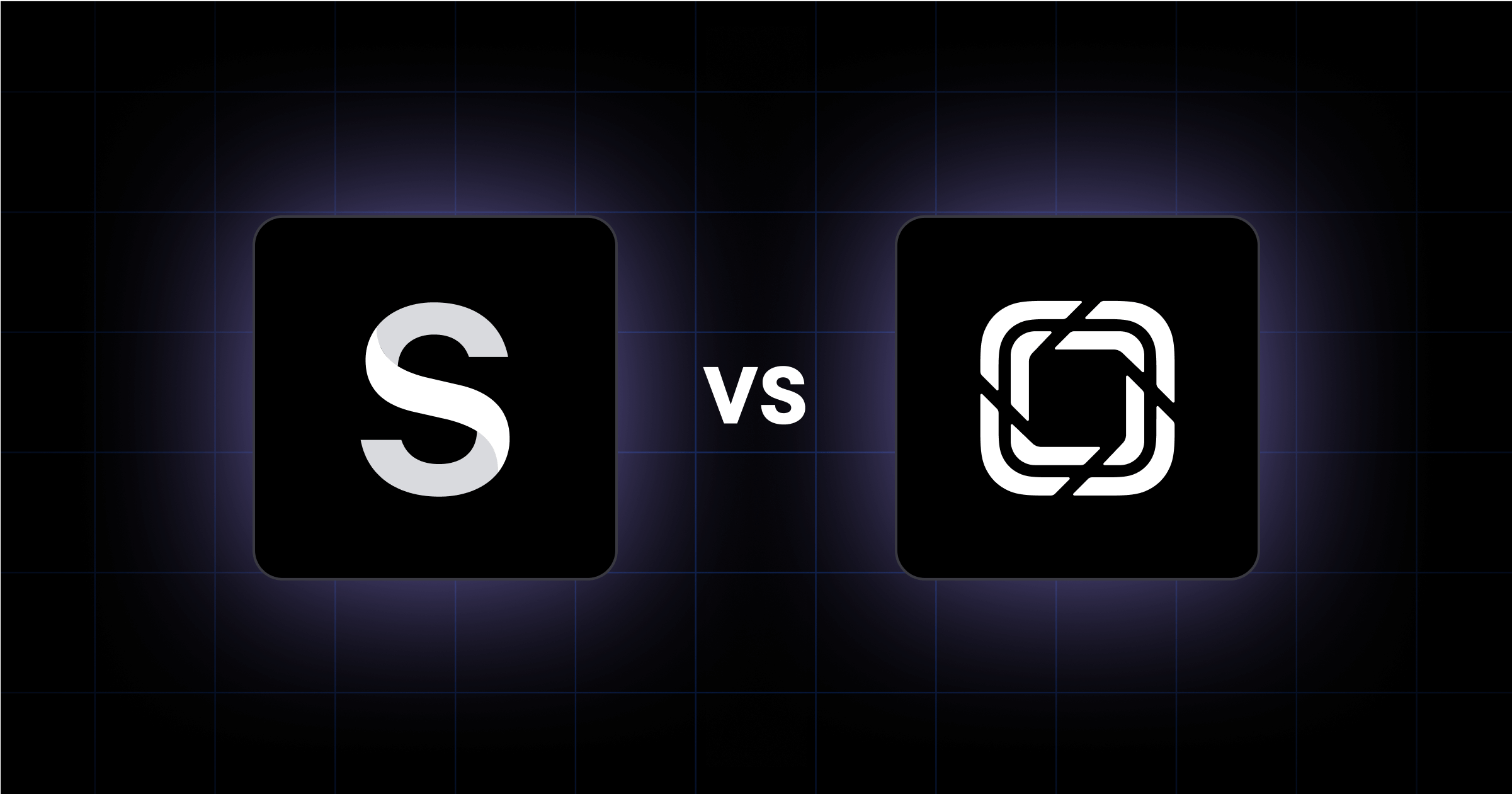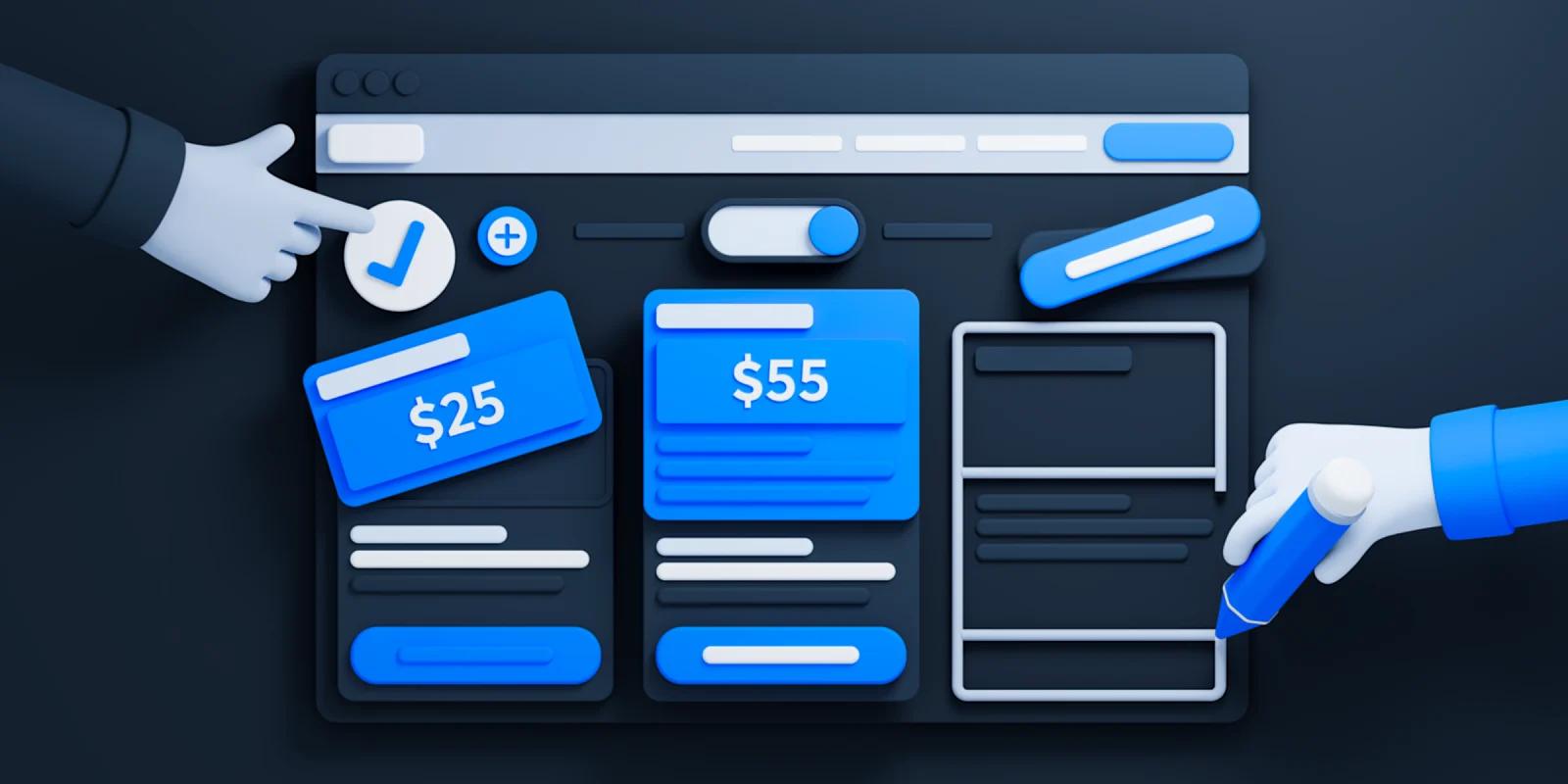Optimizing your AI company website is essential to stand out and reach your target audience.
On-page SEO involves optimizing individual web pages to rank higher and attract more relevant traffic from search engines. For AI startups, this means:
- Creating Informative Content: Provide valuable information that addresses the needs and questions of your audience.
- Optimizing Title Tags and Meta Descriptions: Write titles and descriptions that include relevant keywords and accurately reflect your content.
- Enhancing User Experience: Ensure your website is user-friendly with easy navigation, fast loading times, and mobile responsiveness.
Using professional on-page SEO services can help you effectively implement these strategies and improve your website's performance.

On-Page SEO Strategies for AI Startups
AI startups face unique challenges due to the technical nature of their products and services. Key differences include:
- Technical Content Complexity: Explaining sophisticated AI concepts in an accessible way to engage a broader audience.
- Rapid Industry Evolution: Regularly updating content to remain relevant.
- Niche Keywords: Targeting AI-specific keywords to attract a more qualified audience.
- Establishing Authority: Demonstrating expertise through detailed explanations and real-world applications to differentiate your startup.
Addressing these factors helps tailor on-page SEO strategies to effectively reach and educate potential customers.
Set Realistic SEO Goals
Establishing achievable SEO goals is important for long-term success. Consider the following steps:
- Identify Key Performance Indicators (KPIs): Focus on metrics like organic traffic growth, keyword rankings, and user engagement to measure progress.
- Understand the SEO Timeline: Recognize that improvements are gradual, and significant changes may take several months.
- Monitor Performance Regularly: Use tools like Google Analytics and Search Console to track performance and identify areas for improvement.
- Adjust Strategies Based on Data: Refine tactics based on insights from data analysis.
- Prioritize Sustainable Growth: Aim for steady progress to build a strong foundation for your online presence.
One effective approach is to enhance blog strategies to consistently provide valuable content and improve search rankings.
Setting realistic expectations and optimizing strategies can achieve meaningful results in your SEO efforts.
Keyword Research and Selection
Conducting thorough keyword research is vital for AI startups aiming to enhance search engine visibility. By identifying and targeting the right keywords, you can attract visitors seeking AI solutions.
Identify Relevant Keywords for Your Niche
Pinpoint keywords that your target audience uses when searching for AI services. Focus on:
- Industry-Specific Terms: Words like "machine learning" or "natural language processing."
- Problem-Solving Phrases: Terms that describe the solutions you offer, such as "AI-powered data analysis."
- Long-Tail Keywords: Specific phrases indicating strong user intent, like "AI startup for healthcare analytics."
Conducting a thorough B2B competitor analysis can also help you identify the keywords your competitors are targeting, giving you insights into gaps and opportunities in the market.
Use AI Tools for Keyword Analysis
Use AI-powered SEO tools or keyword research services to streamline your keyword research process. These tools can help you:
- Discover Relevant Keywords: Uncover terms with moderate competition levels.
- Analyze Competitor Strategies: Gain insights into the keywords your competitors are ranking for.
- Identify Related Phrases: Find additional keywords and variations you might have overlooked.
Balance High-Volume and Long-Tail Keywords
Striking a balance between popular and specific long-tail keywords is essential:
- Incorporate High-Volume Keywords: Use broad terms in key on-page elements like titles and headers.
- Target Long-Tail Keywords: These often attract more qualified leads ready to engage with your services.
- Optimize Content Naturally: Incorporate both types of keywords naturally into your content.
- Monitor and Adjust: Regularly assess which keywords are driving traffic and adjust your strategy.
Thoughtfully selecting and integrating keywords helps connect with the right audience and improve search engine rankings.
How to Optimize Existing Website Content
Creating and optimizing your website content is crucial for improving search engine rankings and engaging your audience.
Write Effective Meta Titles and Descriptions
Your meta titles and descriptions are often the first things users see in search results. To make a strong impression:
- Include Relevant Keywords: Use primary AI-related keywords in your titles and descriptions.
- Keep Titles Concise: Ensure they display fully in search results.
- Write Unique Meta Descriptions: Craft descriptions that summarize your content and highlight your AI solution.
- Focus on Clarity: Clear and honest titles build trust with your audience.
Example of an effective title: “AI-Powered Data Analytics for Business Growth | YourStartupName”
Enhance SEO with Quality Content
High-quality content is essential for attracting visitors and improving search rankings. To enhance your website:
- Provide In-Depth Information: Create detailed content about AI technology and its benefits.
- Use Clear Headings: Organize content with descriptive headings to improve readability and SEO.
- Simplify Complex Concepts: Explain AI in simple terms to reach a broader audience.
- Update Regularly: Keep content fresh to reflect the latest developments.
- Include Visuals: Use images or infographics to illustrate points, optimizing them with descriptive alt text.
By focusing on enhancing UX and SEO, you can improve user engagement and search engine rankings.
Use AI to Enhance Content Relevance
Using AI tools can help you optimize your content strategy:
- Keyword Research: Use AI-powered tools to identify relevant keywords.
- Content Analysis: AI can assess content for readability and SEO best practices.
- Personalization: Implement AI to deliver personalized content based on user behavior.
Focusing on these strategies can help you create engaging content that connects with your audience and improves visibility.

Technical SEO Considerations
Beyond optimizing content, it's important to focus on technical SEO aspects that can impact your website's performance in search engine rankings.
Improve Website Speed and Performance
Website speed affects user experience and search rankings. To enhance performance:
- Optimize Code: Minify CSS, JavaScript, and HTML files.
- Use Browser Caching: Store static resources on users' devices.
- Utilize a Content Delivery Network (CDN): Provide faster global access.
- Compress Images and Files: Decrease page size.
- Reduce HTTP Requests: Minimize page elements.
Ensure Mobile-Friendliness
Ensure a smooth mobile experience:
- Implement a Responsive Design: Adapt layout to fit screen sizes.
- Test Your Site: Check functionality on different devices.
- Optimize Load Times: Compress images.
- Ensure Interactive Elements Work: Verify compatibility on mobile platforms.
Implement Structured Data and Schema Markup
Structured data helps search engines understand content, enhancing visibility:
- Use Appropriate Schema Types: Apply types like Article or SoftwareApplication.
- Include Relevant AI-Related Properties: Provide detailed information.
- Markup Key Information: Highlight AI algorithms used.
- Implement Product Schema: Showcase features of your AI software.
Implementing key technical SEO optimizations is crucial for improving your website's visibility and user experience.
How to Monitor and Analyze SEO Performance
Use Analytics Tools to Track SEO Success
Use analytics tools like Google Analytics and Search Console to monitor SEO efforts. Track keyword rankings, organic traffic, and user engagement metrics such as time on page and bounce rate. Insights from these tools help identify successful pages and areas for improvement.
Adjust Strategies Based on Data Insights
The data from analytics tools guide action. Refine content to better match user intent if certain keywords aren't driving traffic. Low engagement might indicate content or user experience needs revision. Regular analysis allows informed adjustments to SEO strategies.
Perform Regular SEO Audits
Perform regular SEO audits to maintain and improve performance. Audits uncover technical issues, content gaps, and optimization opportunities. Tools like Surfer Audit can analyze on-page SEO elements and highlight areas needing attention. Routine audits ensure alignment with best practices and adapt to algorithm changes.
Future Trends in On-Page SEO for AI Startups
Adapt to AI and Machine Learning's Impact on SEO
Search engines increasingly use AI and machine learning to understand content. Adapt to this change by:
- Developing Content Around AI Entities: Clearly define AI-related concepts and technologies.
- Using AI Tools for SEO Optimization: AI tools assist in keyword research and content optimization.
- Emphasizing E-E-A-T: Establish experience, expertise, authority, and trustworthiness through case studies and research.
By integrating AI technologies, you can enhance your website's capabilities and stay ahead in the competitive AI industry.

Prepare for the Future of On-Page SEO for AI
To remain competitive in the evolving SEO landscape:
- Enhance User Experience: Ensure fast loading, mobile-friendliness, and intuitive navigation.
- Implement Structured Data: Use schema markup relevant to AI startups.
- Keep Content Updated: Refresh content to reflect AI developments.
- Monitor and Adjust Your SEO Strategy: Use analytics tools to track performance and adjust strategies based on insights.
By focusing on these strategies, you can future-proof your website and maintain a strong online presence.
By implementing these on-page SEO strategies specific to AI startups, you can improve your online visibility, attract your target audience, and stay competitive in the AI industry. Remember, SEO is an ongoing process, so regularly monitor your performance and adjust your strategies to achieve steady growth and reach your business goals.
Here at Webstacks, we help many companies level up their online presence through next-gen solutions for websites.
If you want to learn more about SEO and structured content, feel free to reach out to us!




